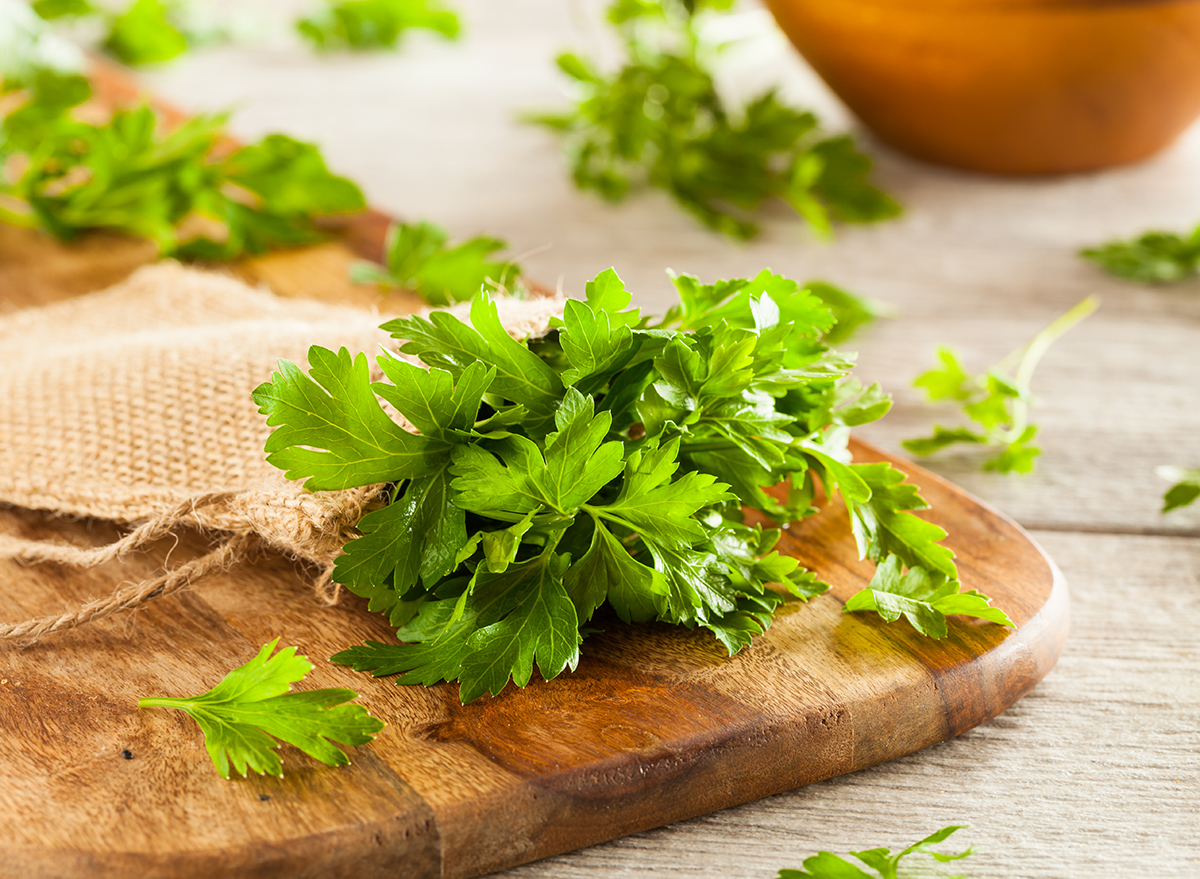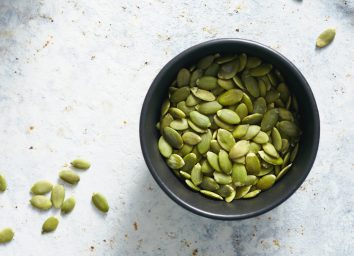4 Surprising Effects of Eating Parsley You Never Knew

You're out to dinner and order this delicious, juicy steak or this fresh, homemade pasta dish. Your meal comes out and it looks appetizing and aesthetically pleasing. Sitting on top of the glistening steak or mound of pasta is this little garnish. And instead of eating it, you just push it to the side and continue devouring your meal. You most likely just passed on the leafy herb, parsley.
No one really thinks to eat the parsley on the dish, unless sprinkled into the actual meal. However, there are some benefits to actually consuming it. We spoke with member of the Eat This, Not That! medical expert board Lauren Manaker, MS, RDN, LDN, CLEC, CPT, author of The First Time Mom's Pregnancy Cookbook, The 7 Ingredient Healthy Pregnancy Cookbook, and Fueling Male Fertility on some of the unique features of this little green sprout. For more on leafy garnishes, check out 5 Surprising Effects of Cilantro, Says Dietitian.
You may have fresh breath.

"An age-old remedy for bad breath is munching on some fresh parsley," says Manaker.
This herbaceous green contains natural aromatic oils that give parsley its distinct flavor and scent. And these may help freshen your breath.
Plus, parsley (as well as most leafy greens) contains a compound called chlorophyll. This compound has been studied to reduce body odors and is an active ingredient in some deodorants and mouthwashes.
Although more evidence is needed to confirm this benefit, it still doesn't hurt to take a bite or two of the leafy green.
"Since it is a low-risk solution for halitosis, even if it doesn't work, it won't do any harm," says Manaker.
You may end up eating less salt.

No longer just a bright garnish to place on top of your dish, that parsley decor may be getting eaten instead of pushed to the side.
"Parsley naturally contains a delicious flavor, and including it in dishes may help boost the flavor of the meal without the need for adding too much salt," says Manaker.
To get an idea of how to incorporate more parsley into your dish, try our Sprig of Parsley Smoothie.
You may support your immune system.

You've heard about an apple a day, but what about a piece of parsley a day?
According to Manaker, parsley is a natural source of vitamin C, a nutrient well-known to support immune health.
The USDA suggests that one cup of chopped parsley contains 79.8 micrograms (mcg) of vitamin C, as well as 984 micrograms (mcg) of vitamin K, which is 1,230% of the recommended intake of vitamin K. Vitamin K may also be helpful to the immune system.
You may experience improved digestion.

"Parsley is a source of fiber, which can help keep bowel movements regular and support gut health," says Manaker.
Not eating enough fiber can lead to being backed up, weight gain, constantly feeling sleepy and bloated, and developing high cholesterol. If you're using parsley as a garnish, it likely won't help you meet your fiber needs; however, throw a bunch into a herb salad, toss some leaves on top of grilled fish, or blend it into a chimichurri sauce and you can reap its fibrous benefits.








